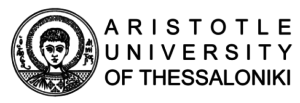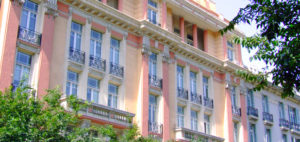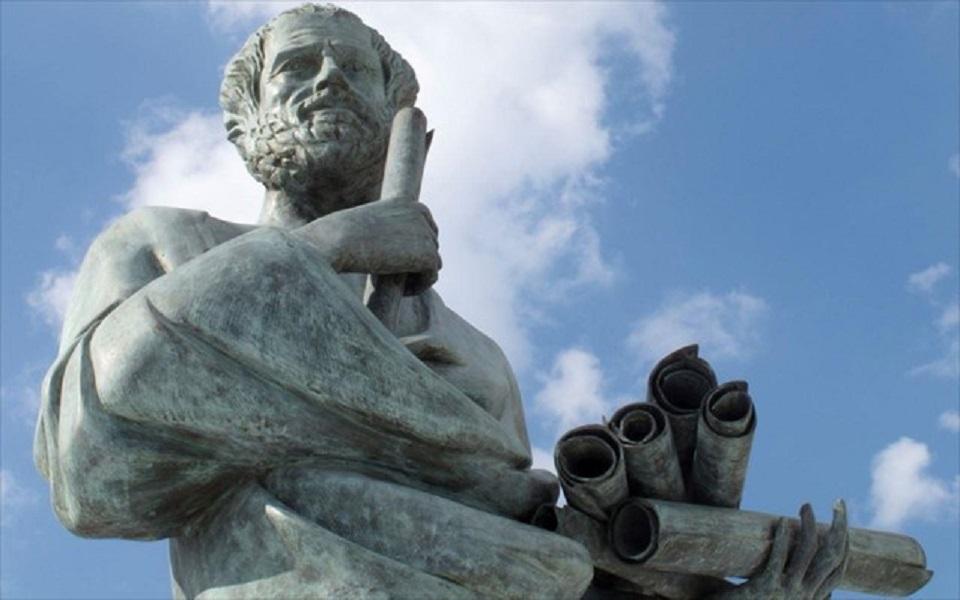Aristotle University of Thessaloniki is the largest university in Greece and it is comprised of 10 faculties, consisting of 44 departments, 5 independent departments, and branches located in surrounding cities. The university today has about 42.000 “active” students. The teaching – research staff consists of 2.300 people, the special educational staff of 195, and the remaining teaching staff of 296. Furthermore, 748 members of the special administrative – technical staff and 737 administrative personnel are in the service of the university. The Aristotle University of Thessaloniki:
Has proceeded recently in many bilateral agreements with universities and research institutions in Europe, the former Soviet Union, the United States, Canada and Australia.
Participates in all European student exchange programs (e.g. Erasmus, Comett, Lingua, Tempus, Med-Campus, Socrates).
Is a member of the following international organizations: International Association of Universities, European University Association, Coimbra Group, Community of European Universities, AIMOS Network, Confederation of EU Rectors’ Conferences.
Research is developed in all fields of theoretical and applied science by all the schools and laboratories of the A.U.TH. All the research is supported by private, public and European institutions with funding. It’s worth mentioning that A.U.Th., in the last three-year-period, has collaborated with 1.700 partners (Universities, Research Centers, Companies) for the implementation of 3.500 Research and Technological Development RTD Projects. 1.340 members of the teaching and research staff, 12.000 external co-operators as well as a large number of postgraduate students have participated ιn these projects. The overall budget of these projects has risen up to 150 million euros. During the last three years the Research Committee has managed over 146.627.000 Euro coming from externally funded research projects. The annual turnover of the Research Committee is 46.920.000 Euro.
The School of Journalism and Mass Communications maintains a sustained record of research output in the major areas of journalism studies, certain aspects of cultural studies and mass communication. In international league tables and university departments for the year 2012-13, prepared by the QS, the School of Journalism & Mass Communication emerged in the top 150 departments o ranked 146th in the world, and 50th in Europe. The School profile matches the tasks of the proposal, since it has conducted a seminar upon Fact-checking and introduced a seminar regarding “Research and verification of Journalistic content”
Three of the five official laboratories of the school of Journalism & Mass Communications, namely the Media Informatics Lab, the Electronic Media Lab, and the Social Media Lab study subjects related to the objectives of the research proposal. Specifically the Electronic Media Lab with the radio and TV studio it has, it is capable to produce audio visual production as well as more advance multimedia productions (for example wed documentaries. The Media Informatics Lab has been involved in the education in the fields of media literacy with a focus in the use of technology and also in the use and study of social media. Finally the Social Media Lab is mainly studying the way people think, feel and behave while communicating through social media. It is also worth noting that the School of Journalism and Mass Communication has close ties with the Journalists’ Union of Macedonia and Thrace Daily Newspapers in the area of research and teaching. The school, the faculty members and other personnel that participates in the proposed project have considerable research experience and publications in the thematic area of the proposed project.
The work of this project will be carried out by the Multidisciplinary Media & Mediated Communication Research Group (M3C), which has been formed to serve the highly demanding interdisciplinary needs of contemporary media, such as the ones that are encountered in the proposed framework. Researchers from the School of Journalism and Mass Communication, the associated laboratories and their collaborators have joined this effort, offering scientific expertise on a wide interdisciplinary field covering the areas of mediated communication and audio-visual technologies, human computer interaction, intelligent systems and software engineering, information processing and data journalism (in all involved aspects of media analytics, linked semantics and data visualization services).
Both the involved laboratories and the individual researchers have collaborated in more than 30 contract projects and in associated research works (and publications). Among other distinctions, one should mention the 2nd winning position at the RoboCup Rescue Autonomous vehicle category in years 2013 and 2015 (with the Robot PANDORA team of AUTH), as well as the 3rd winning position at the MIREX 2015 (Music Information Retrieval Evaluation eXchange) competition in the “Music/Speech Detection” tasks.



